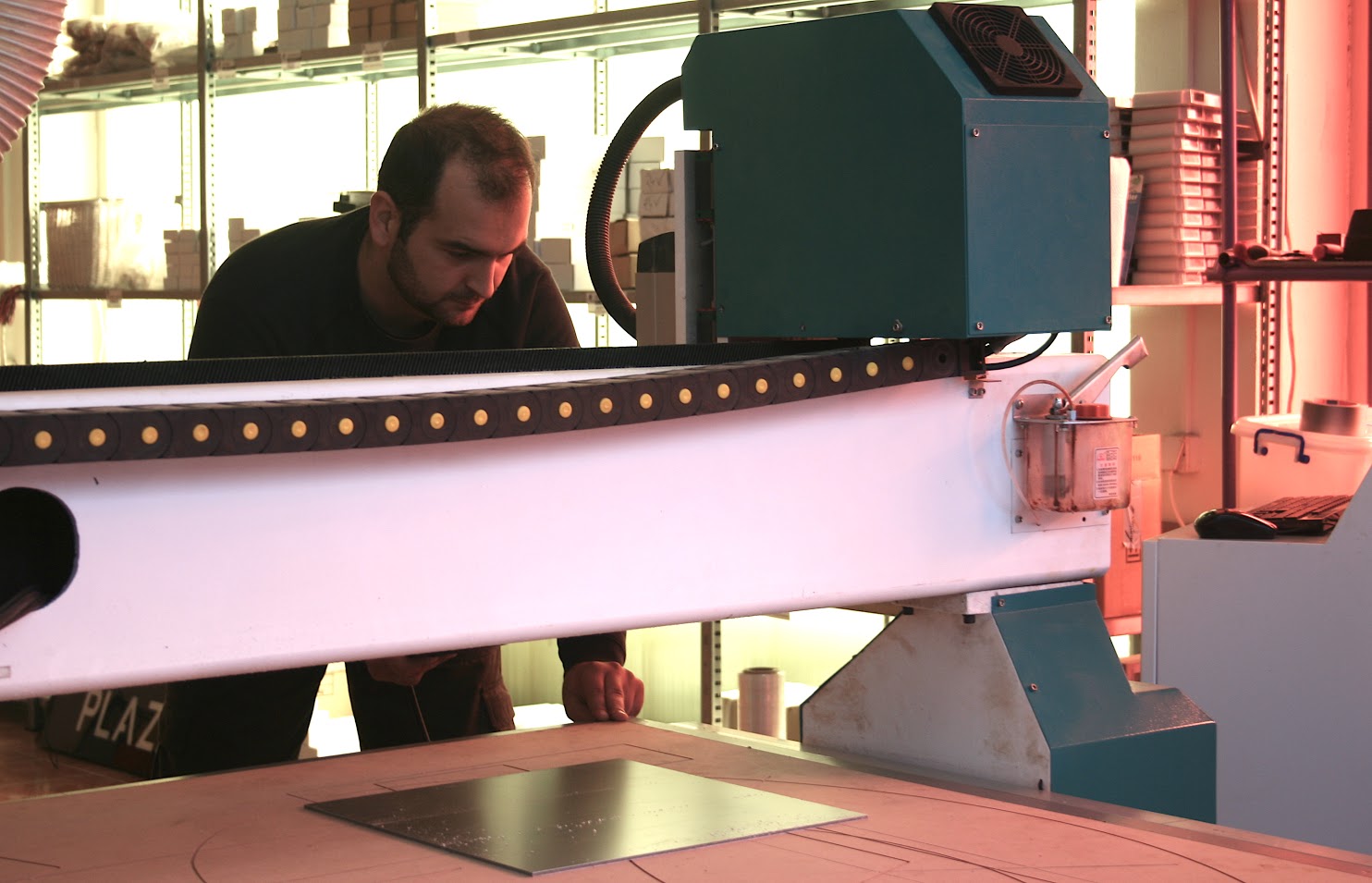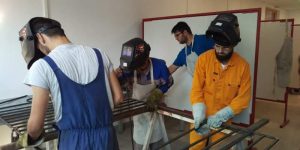Emir Slatina places a Plexiglas plate on a Computer Numerical Control (CNC) machine and reads out the plate size to Alen Čamić who enters those parameters in the computer using the CNC programming software.
This and other tasks in the production of outdoor Plexiglas advertisements using the CNC technology are new to both of them. They are two out of the five beneficiaries of the Support to Local Employment Partnerships in Bosnia and Herzegovina (LEP) project who received vocational training and as of 1 December 2017 have jobs.
They say that being part of the project and now being employed means a great deal to them; Alen was out of work for two years and Emir for a year and a half and both have families to support.
The European Union (EU) is funding the project with EUR 4 million in an effort to help improve the standard of living and drive local development and employment in the country by increasing employability of some 2,000 people and creating at least 620 new jobs in 22 municipalities through this project alone; the project is part of a broader EUR 19 million EU funded Programme for Local Development and Employment.
To employment through partnership
Alen (39) and Emir (31) were among ten unemployed people who attended a three-month-long training programme for CNC machine programmers and operators provided by the Novi Grad Sarajevo Local Employment Partnership – one of 15 such partnerships established through the project with the EU funds.
While Alen is a mechanic, Emir holds a master’s degree in mechanical engineering. Yet both ended up being long-term unemployed, as their skills were not needed in the labour market.
“For almost 18 years I worked at GRAS (public transport company) as a mechanic. Then that job came to an end and I was unemployed for two years,” says Alen, who is married and has a three-year-old son.
The International Labour Organization (ILO), the project implementing agency, developed the LEP project to assist people like Alen and Emir in gaining a decent employment by helping reform local labour markets and harmonise the workforce supply and demand. This is done through the establishment and provision of technical assistance and coaching to partnerships that include local-level authorities, education institutions, employment services, non-governmental organisations and employers that work together on overcoming obstacles to local development and employment.
Alen and Emir are already benefiting from this EU-supported approach to local development. Novi Grad Sarajevo Partnership, in their case, analysed the skills needed by local employers and helped the unemployed develop those skills by providing them with suitable vocational training.
Motivation for vocational training
The project beneficiaries, who are all members of vulnerable groups including the long-term unemployed, are selected through public calls.
“When I applied for the training programme advertised through a public call issued by Novi Grad Sarajevo Municipality it was very important for me to be accepted and be given a chance to prove myself. I’m 39 but I still have a lot of energy, drive and desire for decent work, which is something that many, up to now, failed to see or recognise,” says Alen.
“My problem was that all my previous jobs were unstable. Some of the companies I worked for didn’t perform well, while some employers rejected my applications under a pretext that I was overqualified. I already had some experience with programming but I’ve never worked as a CNC machine operator. I thought that those skills would help me get a job so I applied for the training to obtain that certificate as well,” adds Emir, who, like Alen, is married and has a six-month-old daughter.
With dependents at home, Alen and Emir both needed jobs and did not need any further motivation to apply for or attend the training programme. “We tried to be the best during the training so we would be able to get jobs as soon as possible,” says Alen while Emir nods his head.
Employment streak
As of 1 December 2017, the first five project beneficiaries have jobs; Alen and Emir with Cebos, a company which is a member of the Novi Grad Sarajevo Partnership, and the three others with its partner companies.
But this is not the end of the employment streak for the Partnership. One of its training participants has decided to start their own business, while two others have already had job interviews. In addition Novi Grad Sarajevo Partnerships runs three more vocational training programmes in transport, IT and body care that will see at least 12 more people employed.
Meanwhile, 14 other partnerships are actively providing vocational training in the fields of metal, wood, food and textile processing; agriculture; entrepreneurship and tourism that will soon start yielding employment for further 600 project beneficiaries.




